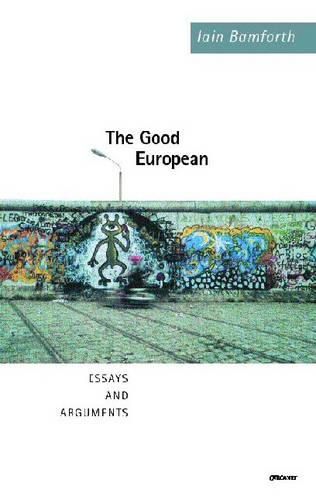Readings Newsletter
Become a Readings Member to make your shopping experience even easier.
Sign in or sign up for free!
You’re not far away from qualifying for FREE standard shipping within Australia
You’ve qualified for FREE standard shipping within Australia
The cart is loading…






Nietzsche, warning his countrymen in the Bismarck era against the nationalism that sought to promote all that was anti-rational in the German tradition, exhorted them to be ‘good Europeans’, avatars of the enlightened economic man of the eighteenth-century. Yetas R. G. Collingwood observed in his last great inquiry into the nature of civilisation, Nietzsche was himself a victim of the disease he diagnosed. In The Good European Iain Bamforth reports on fifteen years of ‘experimental living’ during which his attachment to the old continent brought him from Berlin, in the week in which he saw the fall of the Wall in 1989, to Strasburg, heart of aboriginal Europe, a region whose divided loyalties have affected the nature of Europe itself. With his ear attuned to the complexities of culture and politics, Bamforth attempts to discover Europe through extra-diplomatic channels. He offers essays on writers and thinkers who have done much to define the small archipelago on the edge of Asia, including classics such as Kleist, Kafka, Roth and Benjamin, W. G. Sebald and Mavis Gallant. He provides a portrait of the Nazi jurist Carl Schmitt, a send-off for Bernard Pivot’s classic literary chat-show Bouillon de Culture, a scrutiny of philosophising media pundit Peter Sloterdijk, landscapes from Provence and Bavaria, reports from Prague and Geneva, Franco-German shibboleths, a sarcastic letter from ‘Kakania’, and an anatomy of the Alsatian humorist Tomi Ungerer. Europe often reeks of the terminally nostalgic and the curatorial. Here, a sceptical Scots intelligence reaches out to Musil, Heine, Gogol, Sterne, Montaigne, Rabelais and beyond to the gallant, helpless, hero-smitten Don, in the hope that they can help him find the way towards a more generous Europe.
$9.00 standard shipping within Australia
FREE standard shipping within Australia for orders over $100.00
Express & International shipping calculated at checkout
Nietzsche, warning his countrymen in the Bismarck era against the nationalism that sought to promote all that was anti-rational in the German tradition, exhorted them to be ‘good Europeans’, avatars of the enlightened economic man of the eighteenth-century. Yetas R. G. Collingwood observed in his last great inquiry into the nature of civilisation, Nietzsche was himself a victim of the disease he diagnosed. In The Good European Iain Bamforth reports on fifteen years of ‘experimental living’ during which his attachment to the old continent brought him from Berlin, in the week in which he saw the fall of the Wall in 1989, to Strasburg, heart of aboriginal Europe, a region whose divided loyalties have affected the nature of Europe itself. With his ear attuned to the complexities of culture and politics, Bamforth attempts to discover Europe through extra-diplomatic channels. He offers essays on writers and thinkers who have done much to define the small archipelago on the edge of Asia, including classics such as Kleist, Kafka, Roth and Benjamin, W. G. Sebald and Mavis Gallant. He provides a portrait of the Nazi jurist Carl Schmitt, a send-off for Bernard Pivot’s classic literary chat-show Bouillon de Culture, a scrutiny of philosophising media pundit Peter Sloterdijk, landscapes from Provence and Bavaria, reports from Prague and Geneva, Franco-German shibboleths, a sarcastic letter from ‘Kakania’, and an anatomy of the Alsatian humorist Tomi Ungerer. Europe often reeks of the terminally nostalgic and the curatorial. Here, a sceptical Scots intelligence reaches out to Musil, Heine, Gogol, Sterne, Montaigne, Rabelais and beyond to the gallant, helpless, hero-smitten Don, in the hope that they can help him find the way towards a more generous Europe.